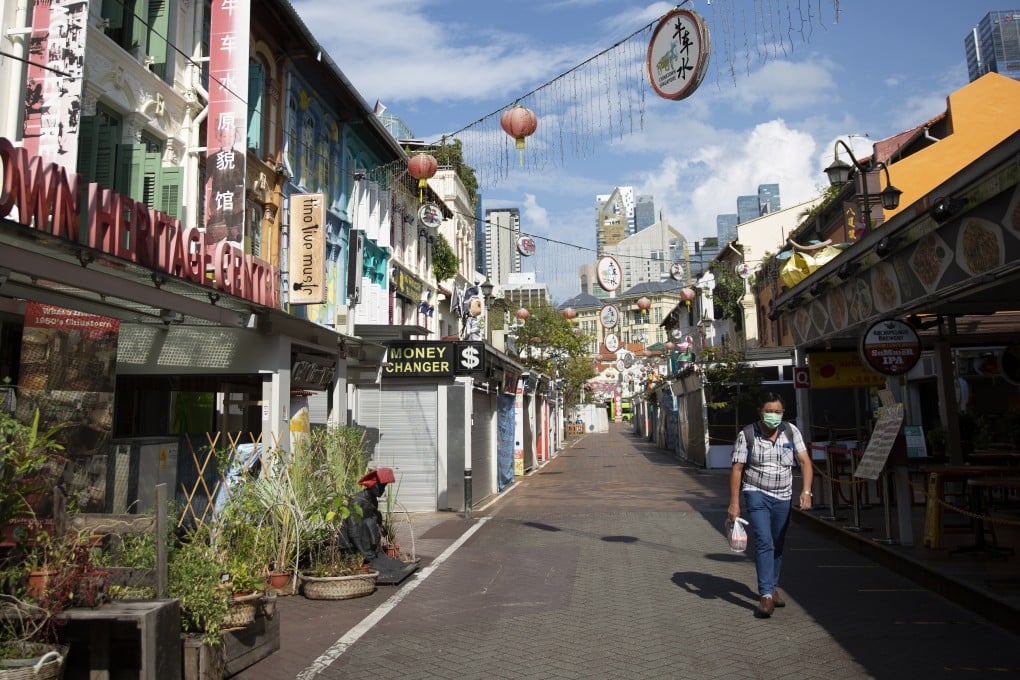Coronavirus: Singapore wary over easing circuit breaker ‘too early’, as cases hit 17,000
- Officials say city state is ‘not out of the woods’, and that safe-distancing rules are likely to stay even after the partial lockdown ends
- Meanwhile, the Singapore government has boosted efforts to handle the virus outbreak in migrant worker dormitories

Health Minister Gan Kim Yong on Friday said it was not just a “single number” that would be considered when deciding whether to lift its partial lockdown, but multiple factors.
“We have to look at the nature of the cases, whether the low number of cases is sustainable and the nature of the transmission, whether we have confidence that the transmission is under control,” he told reporters at a virtual press briefing.
“I think it is important for us to remind ourselves, even though we are seeing the number of community cases coming down, we are not out of the woods yet,” he said.
The basic posture has to be that we are in for a long fight. There will be recurring waves of infections that we have to deal with
Gan said Singapore would need to move to a more “holistic risk assessment”, stressing that the country needed to focus “quite sharply” on efforts to keep community cases low before it could consider easing restrictions.